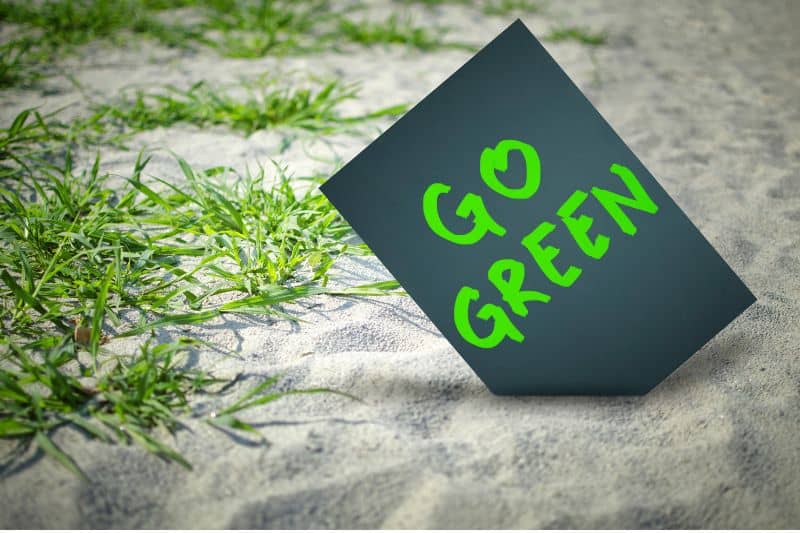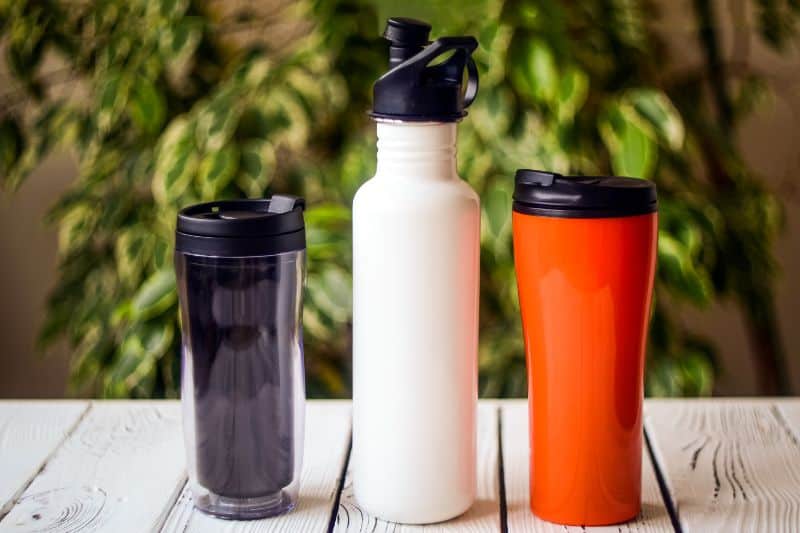By just taking a look around our environment, we realize that there is too much plastic that meets the eye at places such as dumping areas and even shorelines or by the roadside.
Plastic is almost everywhere because it is used to do a lot of things ranging from the packaging of foodstuffs and water to making mobile casing and many other consumer products.
Thus, plastic has become part of our lives.
These are some advantages that it has in our lives, and we have to appreciate them. However, it causes some serious harm to our environment and its inhabitants. In this article, we will examine some of the reasons we should ban plastic bottles.
We are being choked to death by the amount of plastic that we throw away. It’s killing our oceans. It’s entering into our bodies in the fish we eat
~ Kevin Bacon
25 Powerful Reasons Why Plastic Bottles Should Be Banned
Let’s be honest — plastic bottles have made our lives a whole lot easier. They are a cheap and convenient way to pack our drinks and other everyday items. But then, intertwined with all these benefits are some drawbacks.
Let’s examine some of the common disadvantages of using plastic bottles:
1. Plastic Bottles are a Waste of Natural Resources
Oil is a limited resource that is required to transport and manufacture plastic. Making plastic will require crude oil and water. It requires a lot more water to manufacture a bottle and very little to fill it.
2. Transportation Cost
The cost of transporting bottled water to areas where they will be consumed is a waste. The cost of fuel in transporting bottled water from one point to another is quite high for something that could be avoided by banning plastic bottles.
3. Pollution of The Environment
Humans have become careless to the point of ignorance, and many of them can be seen throwing plastic bottles everywhere after use.
Manufacturing these water bottles in various industries leads to the emission of dangerous forms of carbon into the atmosphere, leading to pollution. Burning plastic will also lead to the release of dangerous toxins into the environment.
4. Reality Behind Recycling

Plastic can take 10 years to 1000 years to completely biodegrade, and this means that every plastic that has ever been made still exists in one form or another within our universe.
This means that plastic can never be changed into another form other than plastic, and the only way of getting rid of plastic is through incineration. So far, very few plastics are being incinerated, and this calls for its banning altogether.
5. Purity of The Content
There has been a great illusion on the fact that bottled water is better and cleaner than tap water. The reality behind it is rather the opposite, as tap water is maintained under very strict rules than bottled water.
This makes it even safer to use tap water than bottled water. If people could understand this, then there would be no use of plastic water bottles and should thus be banned.
6. Health Risks
Degradation of plastic water bottles leads to the release of harmful chemicals. In addition, reusing a plastic bottle might provide a good breeding ground for bacteria.
Hence, it’s apparent that plastic bottles can often leave the body at a greater risk to general humanity. It is, therefore, advised to ban and get rid of them once and for all.
7. Bottling of Tap Water
Numerous individuals have been led to think that tap water is unsafe to drink. This is a notion perpetuated by various water bottling companies, even though the truth is that they often utilize tap water to fill their bottles.
This, in essence, represents a significant falsehood that could be dispelled if these bottles were no longer in circulation.
8. Go Green

This campaign stands as one of the most remarkable efforts to tackle pollution-related challenges. The world is rapidly approaching a critical juncture due to various pollution forms.
The Go-green initiative strives to eradicate all types of pollutants, including plastics, while simultaneously establishing sustainable alternatives to combat global warming effectively.
9. Save Money
While the total annual expenditure on plastic water bottles is something most people don’t take into account, a keen analysis of the same would show that bottled water costs much more in the long run.
That means switching to tap water will bring the reality of too much expenditure on plastic water bottles, and this will save a lot of money.
10. Toxin Free
Plastic bottles have been known to harbor toxins harmful to the body of a human being. A perfect case scenario is bisphenol A, which is a toxin that is produced in reusable plastic bottles. Banning the use of plastic water bottles will make the world a safer place, free of toxins like BPA.
11. Stay Hydrated
Purchasing water from different outlets from time to time may seem to be such a difficult task as it is tiresome.
An alternative is, however, presented where one can use a reusable bottle that is kept closed and can be filled from time to time. This puts the user in a position where he can access water and stay hydrated.
12. Lose Weight
The continuous consumption of water from a reusable bottle is very healthy in the sense that there will be an increased uptake of water in your body.
This leads to a better balance of body water and fluids, which will help in better digestion of food; in the long run, it will be important in getting rid of toxins from the body and thus promoting weight loss.
13. Expression of Self

An alternative to plastic water bottles is the reusable bottle. It comes in many colors and different forms, which encourage the user to make a choice on the type and color of a bottle that can express him or her better.
Carrying it around and filling it with water makes one express his feelings a lot better and, in the process, encouraging the ban on plastic bottles.
14. Save Aquatic Life
The convenience of having plastic bottles readily available often leads to their portability, making it easy to carry them wherever we go. Unfortunately, this convenience can sometimes result in improper disposal, with bottles ending up in the ocean or sea.
This has led to the Great Pacific garbage patch, where there is too much plastic in the Pacific Ocean. Scientists have estimated that at this rate, there will be more plastic in the ocean than fish come 2050.
15. Ease in Cleaning
The fewer bottles of water we have in the world, the easier it will be when it comes to cleaning the environment. A ban on plastic bottles will lead to reduced manufacture and, therefore, fewer dispositions thus, it will be a lot easier to clean the already existing mess.
16. Increased Sustainability
A decrease in the use of plastic will lead to a better world characterized by less environmental pollution. A ban on plastic will, therefore, reduce the workload present in making the world a better and more sustainable place to live in.
17. Increased Durability
Plastic is cheap to make, but it can also easily break in case of accidents. Having bottles made of other materials that are more durable will increase durability, and thus, the urge to dispose of broken plastic will be reduced. A ban on plastic bottles for a more durable option will lead to a healthier environment.
18. Increased Conservation
Plastic bottles significantly contribute to pollution, and prohibiting their use would have far-reaching implications. Their reduced use would result in decreased pollution, benefiting the health of humans, aquatic life, and other organisms. This, in turn, would make the conservation of their environments more attainable.
19. Conservation of Natural resources
Plastic bottles are made from crude oil, which is a very limited resource in the world that we are living in. Since it is scarce, there is a need to conserve it for the future. A ban on plastic bottles will mean less use of crude oil in its manufacture conserving for better use in the future.
20. Boxed Water as An Alternative
The presence of alternatives like boxed water provides additional motivation for the prohibition of plastic bottles. Boxed water, a one-time use carton that can be easily recycled, offers a more environmentally friendly substitute, making the case for banning plastic bottles even stronger.
21. Availability of Other Alternatives

A group of students has come up with an alternative to plastic bottles. They have made a biodegradable plastic bottle from natural materials such as algae. If this idea is taken seriously, the use of plastic bottles will no longer be necessary.
22. Inspiration From Other Communities
Many communities and towns, such as Bundanoon in South Wales, have decided to have a ban on plastic bottles. They have managed to get rid of plastic bottles, and they have come up with other alternatives altogether. The world should take a look at what they are doing and follow suit.
23. Public Policies
The need to bring change has also greatly contributed to the need to ban plastic bottles. Different governments, like India, with an ambition to ban and discourage the use of plastic bottles, have begun doing so by banning their use in government functions and offices.
24. Availability of Filtered Water Stations
Making clean water available at different points for the public will discourage the use and carrying of water in plastic bottles. This will make it easier for the public to accept the fact that plastic is bulky to carry around and it is not healthy. The ban will have greater support, and the rate of adoption will be fast.
25. Biodegradable Options
Biodegradable options for plastic bottles have been the topic of discussion in quite a lot of forums. Many have managed to get rid of plastic water bottles, but the same plastic bottles are still being used in other beverages, such as juice.
To truly enforce a plastic ban, it becomes vital to extend these biodegradable alternatives to cover a broader spectrum of beverages, ensuring that the initiative to eradicate plastic is comprehensive and effective.
References:
https://serc.carleton.edu/NAGTWorkshops/health/case_studies/plastics.html
https://theoceancleanup.com/faq/what-are-the-long-term-effects-of-plastic-pollution-in-the-oceans/
https://www.wwf.org.uk/updates/how-does-plastic-end-ocean






